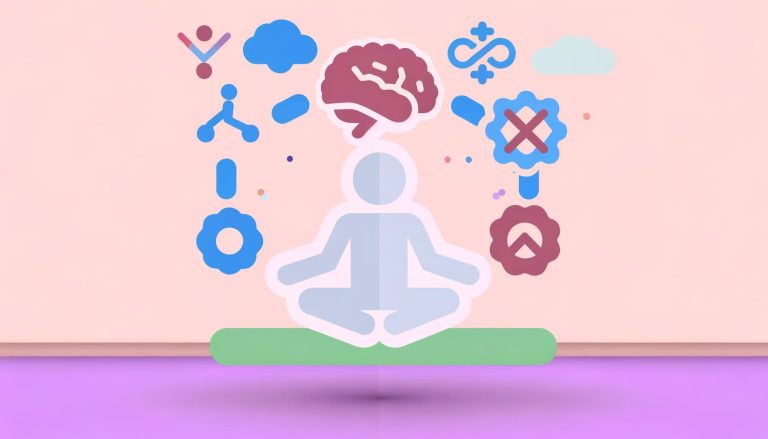When faced with the ups and downs of life, it’s essential to develop healthy coping mechanisms that help us manage stress, anxiety, and other negative emotions. Learning how to cope in a positive way can significantly impact your mental and physical well-being. This guide will provide valuable information on various healthy coping strategies, supported by evidence-based insights from psychology, neuroscience, and related fields.
Understanding Coping Mechanisms
Coping mechanisms are the strategies and behaviors we employ to manage stress and adversity. They can be healthy—promoting well-being—or unhealthy—causing more harm than good in the long run. Knowing the difference between these can greatly affect our quality of life and emotional health.
Healthy vs. Unhealthy Coping Mechanisms
- Healthy Coping Mechanisms: These strategies promote resilience and long-term well-being. Examples include exercise, mindfulness, and seeking social support.
- Unhealthy Coping Mechanisms: These behaviors might provide short-term relief but can lead to negative long-term consequences. Examples include substance abuse, emotional eating, or avoidance.
Why They Matter
Healthy coping mechanisms not only help you deal with stress more effectively but also improve your overall mental and physical health. They can boost your immune system, enhance your mood, and increase your life satisfaction. Conversely, unhealthy mechanisms can lead to compounded stress, exacerbated health issues, and emotional instability.
Effective Strategies for Healthy Coping
1. Physical Activity
Exercise is one of the most effective ways to combat stress. It helps release endorphins, the body’s natural mood lifters, and can improve sleep, concentration, and overall health. Whether you prefer running, yoga, or even a brisk walk, incorporating regular exercise into your routine can immensely benefit your mental well-being.
2. Mindfulness and Meditation
Practices like mindfulness and meditation can help you stay grounded and present. These techniques train your mind to focus on the current moment, reducing anxiety about the past or future. Apps like Headspace and Calm offer guided meditations that can be a good starting point for beginners.
3. Social Connections
Strong social support networks are crucial for mental health. Talking about your feelings with friends, family, or a therapist can provide relief and perspective. If you’re feeling isolated, consider joining groups or communities with interests similar to yours.
4. Positive Self-Talk
Negative self-talk can worsen anxiety and stress. On the other hand, practicing positive self-talk can help boost your confidence and improve your mood. Challenge negative thoughts by questioning their validity and replacing them with positive affirmations.
5. Creative Outlets
Engaging in creative activities such as drawing, writing, or playing music can be incredibly therapeutic. These activities provide a way to express emotions in a non-verbal manner and can bring a sense of accomplishment and joy.
6. Professional Help
Sometimes, professional help is necessary to develop healthy coping skills. Therapists, counselors, and mental health professionals can provide tools and strategies tailored to your needs. Cognitive-behavioral therapy (CBT), for instance, is an evidence-based approach that can help you change unhealthy thinking patterns.
7. Healthy Lifestyle Choices
Maintaining a balanced diet, getting enough sleep, and staying hydrated are foundational aspects of health that significantly influence your ability to cope with stress. These lifestyle choices can improve your physical and mental resilience.
Benefits of Healthy Coping Mechanisms
Adopting healthy coping mechanisms can lead to a myriad of benefits:
- Improved Mental Health: Reduces symptoms of depression and anxiety.
- Enhanced Physical Health: Lowers risk of stress-related illnesses such as high blood pressure and heart disease.
- Better Relationships: Increases empathy and communication skills, fostering stronger interpersonal connections.
- Increased Resilience: Builds your capacity to handle future stressors more effectively.
- Life Satisfaction: Boosts your overall happiness and fulfillment.
Practical Tips for Developing Healthy Coping Mechanisms
- Start Small: Introduce one new coping strategy at a time to avoid feeling overwhelmed.
- Be Consistent: Practice your chosen coping methods regularly for better results.
- Track Progress: Keep a journal to monitor what works best for you.
- Seek Support: Don’t hesitate to ask for help from friends, family, or professionals.
- Be Patient: Developing healthy habits takes time, so be patient with yourself.
Conclusion
Developing healthy coping mechanisms is an ongoing process that requires self-awareness, commitment, and sometimes, professional guidance. By incorporating strategies like physical activity, mindfulness, social support, and positive self-talk, you can effectively manage stress and improve your overall quality of life. Remember, the aim is not to eliminate stress entirely but to handle it in a way that enhances your resilience and well-being.
Sources:


